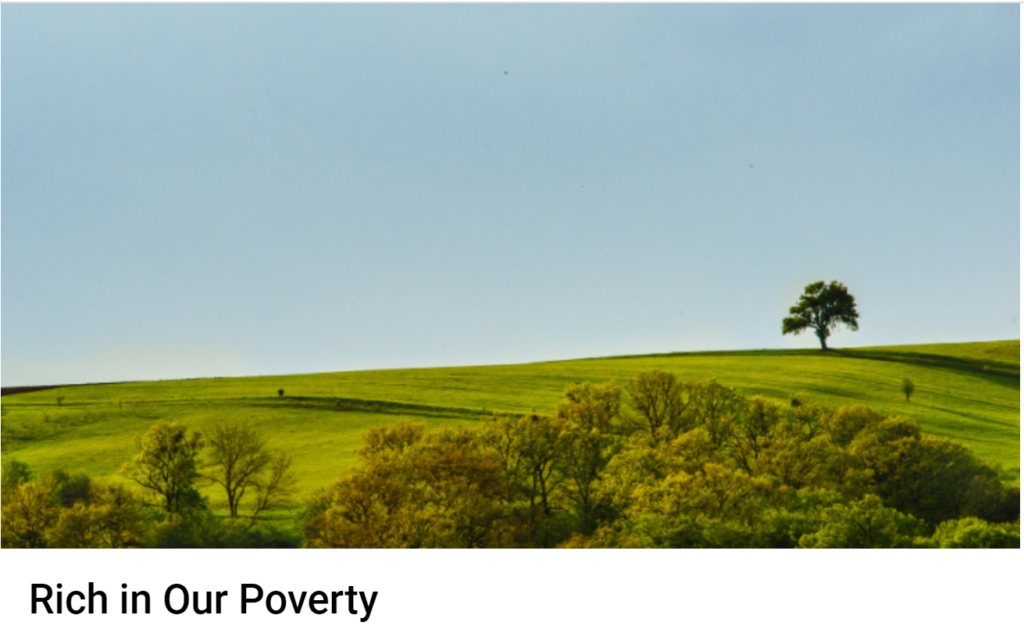
Lovely Lady Poverty
The true religion of Francis’s heart means gospel poverty, the poverty of the poor Christ, and the concrete image of that true religion is Lady Poverty, whom he takes as his bride. Lady Poverty is the Bride of Christ, the only one to ascend the cross with Christ on Calvary. And Francis’s marriage to Lady Poverty assures him the great treasure, which is the kingdom of heaven, but at the cost of the cross, which Francis embraces as eagerly as he embraced his spouse. In this rendering, Francis becomes the epic hero of the gospel who has the courage to find and hold on to the hidden treasure, Holy Poverty, which in a grand paradox means having nothing, which will bring him everything, and at times feeling abandoned by God, only to discover that God is closest when God feels farthest away.
This mystery of gospel poverty is the great desire of Francis’s heart and soul because it is the mystery of Christ, who is being born within Francis as Francis dies to himself to become like Christ.
—from the book God’s Love Song: The Vision of Francis and Clare
by Murray Bodo, OFM, and Susan Saint Sing
Franciscan Media: https://www.franciscanmedia.org/








